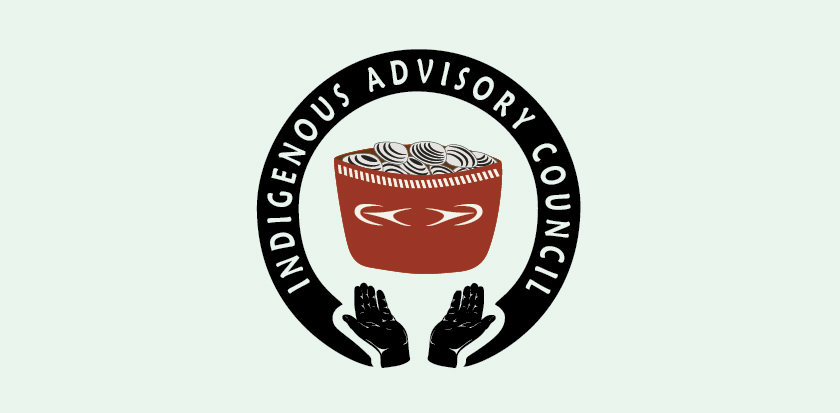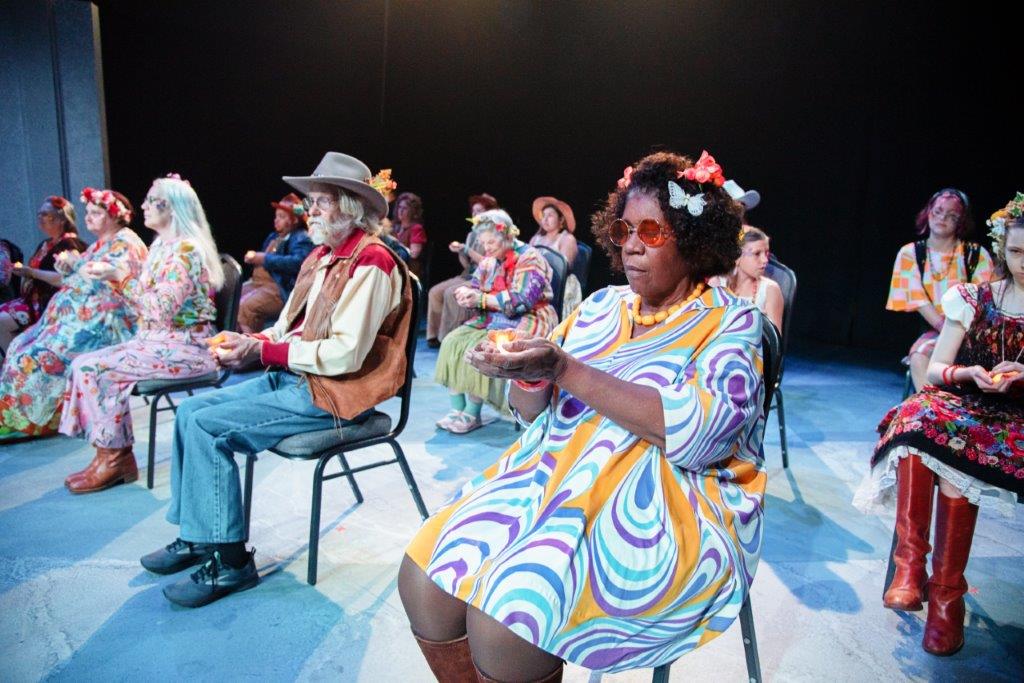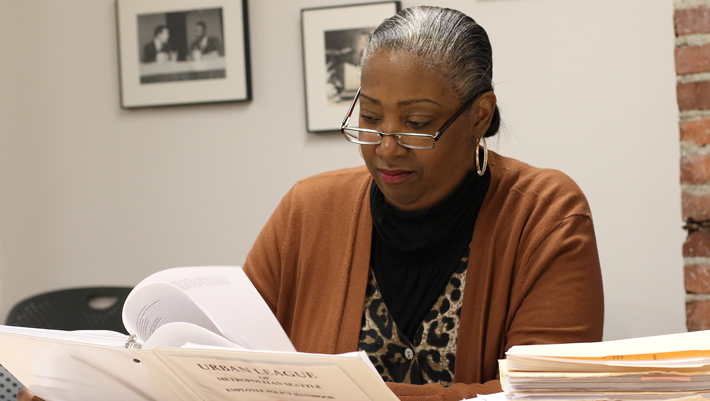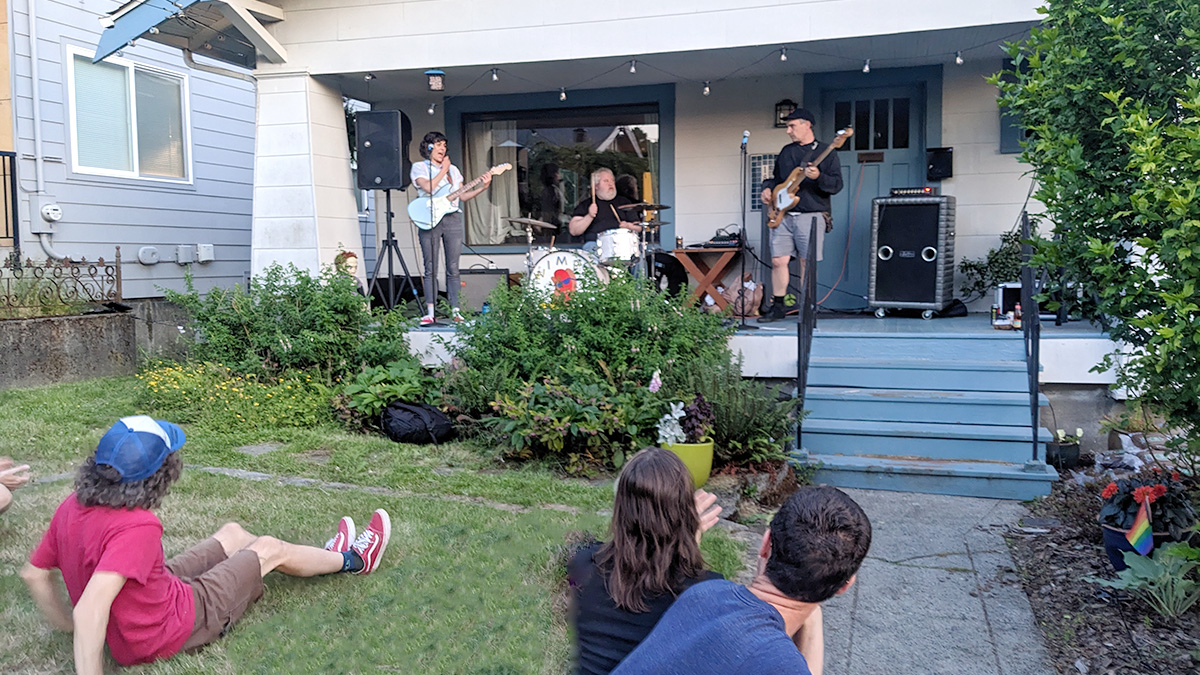
Earlier this summer, people gathered on front lawns and along sidewalks in Wallingford for Porchfest, a live music event where artists performed from resident porches throughout the neighborhood. The event started during the pandemic as a way for people to gather and socialize safely, while giving musicians an opportunity to play for a live audience. We recently connected with event creator Josh Golden to discuss the origin of Porchfest, its evolution from pandemic times, and how a Small Sparks Grant from the Neighborhood Matching Fund has helped support the event.
Can you tell us a bit about Wallingford Porchfest?
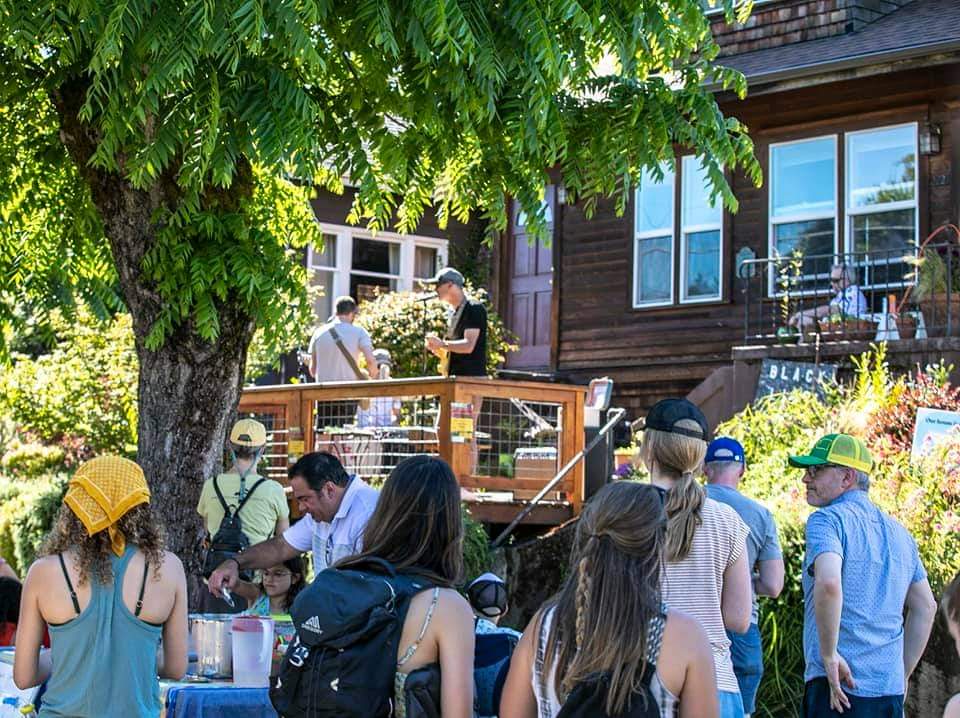
Wallingford Porchfest is a free outdoor neighborhood music festival that was born out of the pandemic to allow bands to have an outlet to play and for people to see live music in a safe, outdoor space. My band was just gathering momentum and had shows lined up when everything shut down. Many professional musicians I know were struggling and scrambling. They were unable to play shows and unable to generate the income they counted on. It seemed to me that there were creative ways that bands could still play, and people could still watch bands play.
I gathered some friends and neighbors and we were able to leverage our neighborhood connections until we found enough families with porches, driveways, and front yards that could host bands and bands that would be willing to play.
Each year the neighborhood has responded amazingly well, and there have been so many new connections between neighbors on and throughout the blocks that host the event.
How did the project come about and who is responsible for organizing?
About 15 years ago, I was visiting my brother who lives in Ithaca, NY. I was walking around the Fall Creek neighborhood in Ithaca and kept seeing and hearing bands playing on porches throughout the neighborhood. I found out later that it was a yearly event there, and though it’s not currently taking place, it had successfully for many years. I thought that it was something that could work well in Seattle too, but also understood that there may not be as much of a need for it as there is not a real shortage of clubs and venues for music here. I didn’t really feel the need to organize a Seattle version until COVID shut all the normal venues down. I contacted one neighbor, and then another, and then started to pull in other friends and pretty soon we had an organizing committee. Our committee has been a little fluid over the years, but the original organizers include Lindsey Winter, Elisha Nottingham, Cameron Elliott, Jonathan Alberts, and myself.
How does this project help engage community and bring people together?
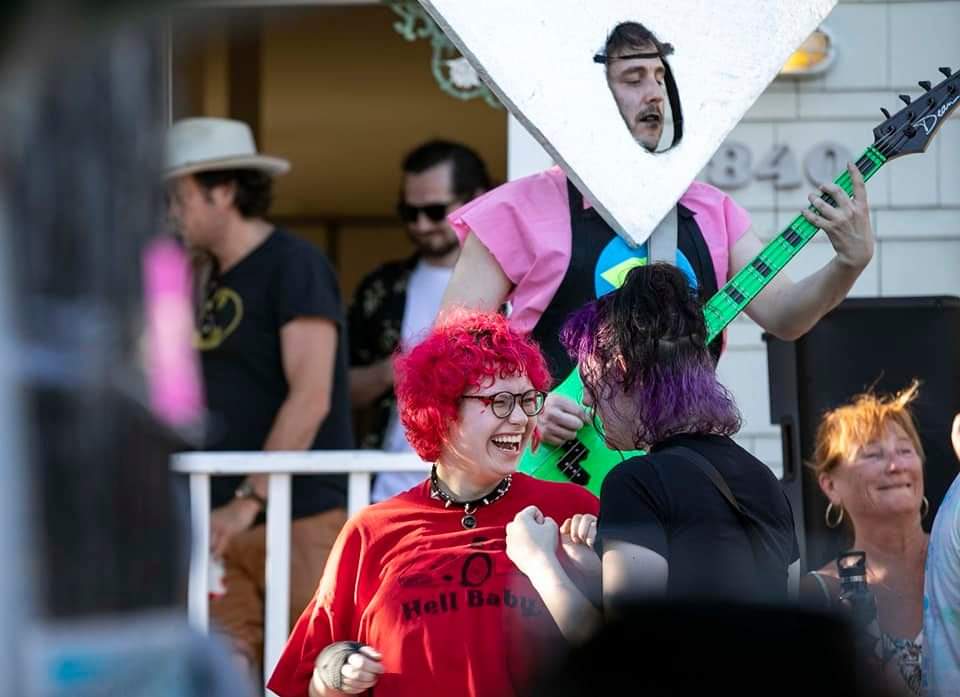
I have lived in Wallingford since 2001. I have seen block parties and neighborhood parties with bands playing outdoors and the energy of those events always seems so positive. I have attended and organized gatherings on Seattle Night Out. There is something about getting a chance to spend time with your neighbors that is healthy. I knew that working together to organize and put together a Porchfest event could be great for people knowing and working and enjoying time with each other. So, I tried to find a block or two in my neighborhood where I had connections or friends of friends who also happened to have a good porch that could accommodate a band. Once we had some neighbors who liked the idea and were committed, it was a lot easier to find other families to host. Pretty soon we had more than enough porch hosts and needed to find bands. Cameron works for Sub Pop and is a recording engineer whose main passion is music, so he initially did a lot of the work to find local bands who needed a place to play. Lindsey and Jonathan were neighbors that were able to get their neighbors to host and, in fact, hosted bands themselves.
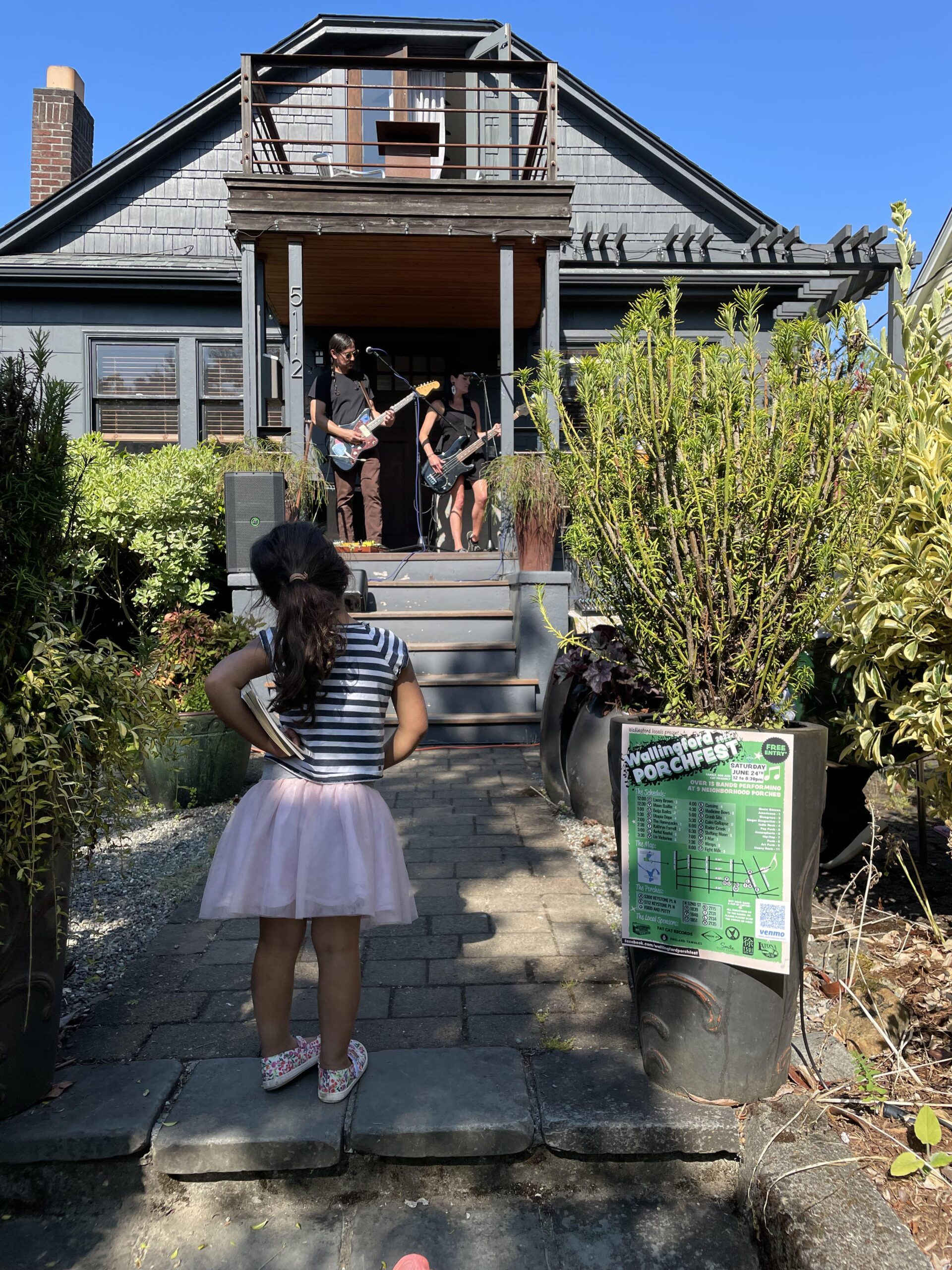
Many of us went house to house to get the word out so it wouldn’t be a surprise to anyone who wasn’t already involved or aware. We made posters and maps and schedules. I passed out flyers at the Wallingford Farmers Market and Elisha started an event page on social media. All of the planning for the event, as well as the event itself, brought people together and energized the neighborhood in a way I haven’t really observed before. There were people handing out water and putting out hoses and sprinklers as the first year took place during the heat dome and it was over 100 degrees on that day. There were people who agreed to donate PA gear, bands who helped other bands by loaning gear and musicians and made sure the PA gear was working, there were neighbors who agreed to clean up after the event, neighbors who hung up flyers, donated money to cover the cost of flyers, neighbors who shut down their blocks with the City, and bands who communicated with the porch hosts to make sure everything went smoothly.
How did the Neighborhood Matching Fund Small Sparks award help make this event possible?
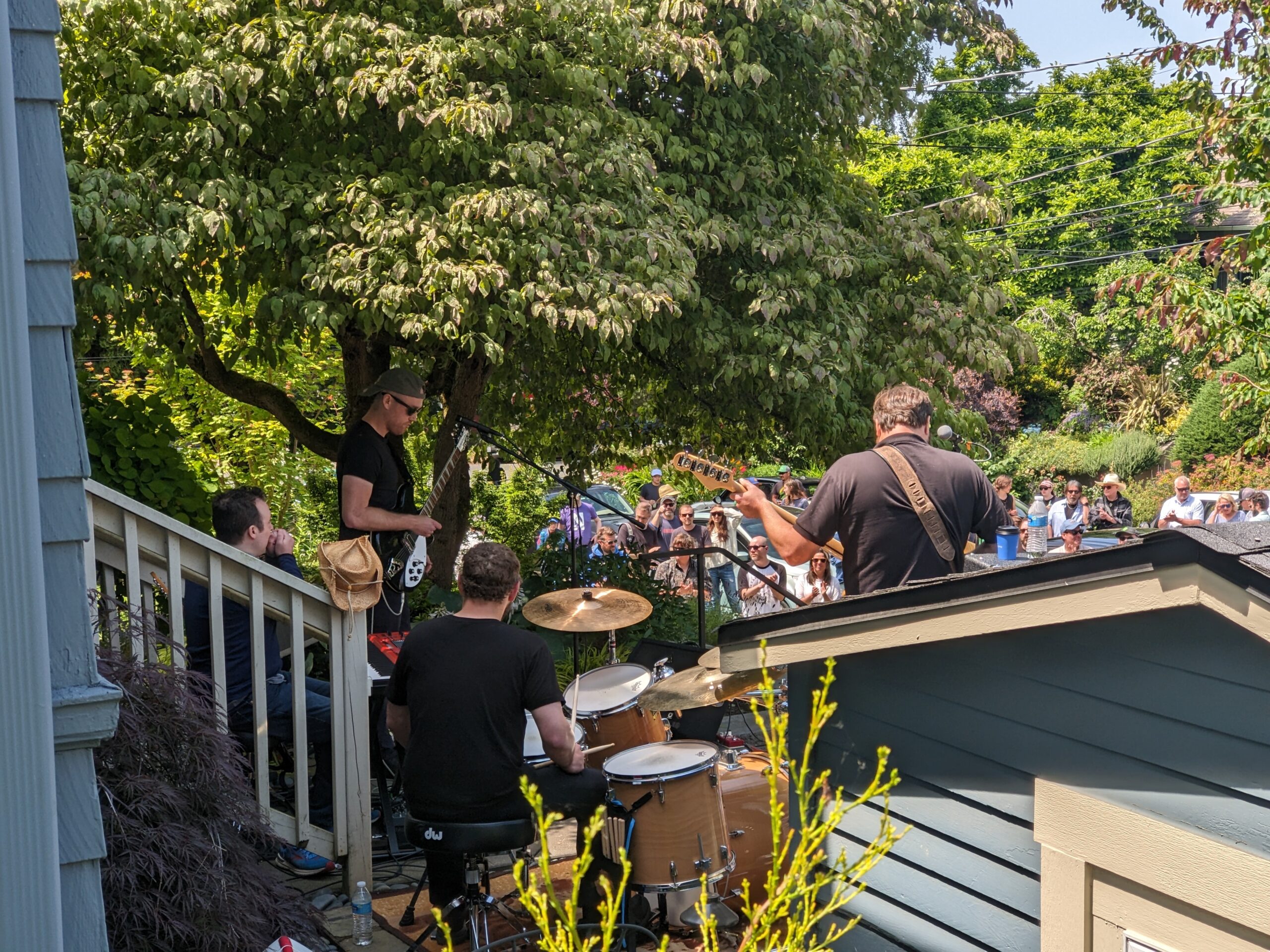
It allowed us to pay the bands. By exclusively using the Small Sparks award to pay the bands, we had to gather friends and neighbors to cover the other expenses, which in turn allowed for more connections between people in the neighborhood and around the city. We found sponsors for porta potties, posters, donated time for booking bands, donated PA equipment, people willing to do design work, etc.
I tried to apply for the Small Sparks Grant through the Neighborhood Matching Fund the first year, but missed the deadline. By then there was so much momentum that I put the event on anyway and that first year went well, but we were not able to pay the bands as much as I had hoped. We simply asked the crowd to donate to the bands if they could. The following year I got the grant application in on time and was awarded $5,000 through the Neighborhood Matching Fund. We used the entirety of the grant money to split between the bands that year and were able to approach bands with a guaranteed payment. It felt to me that I was meeting my goal of getting bands paid while allowing a free event for music fans to attend that was safe.
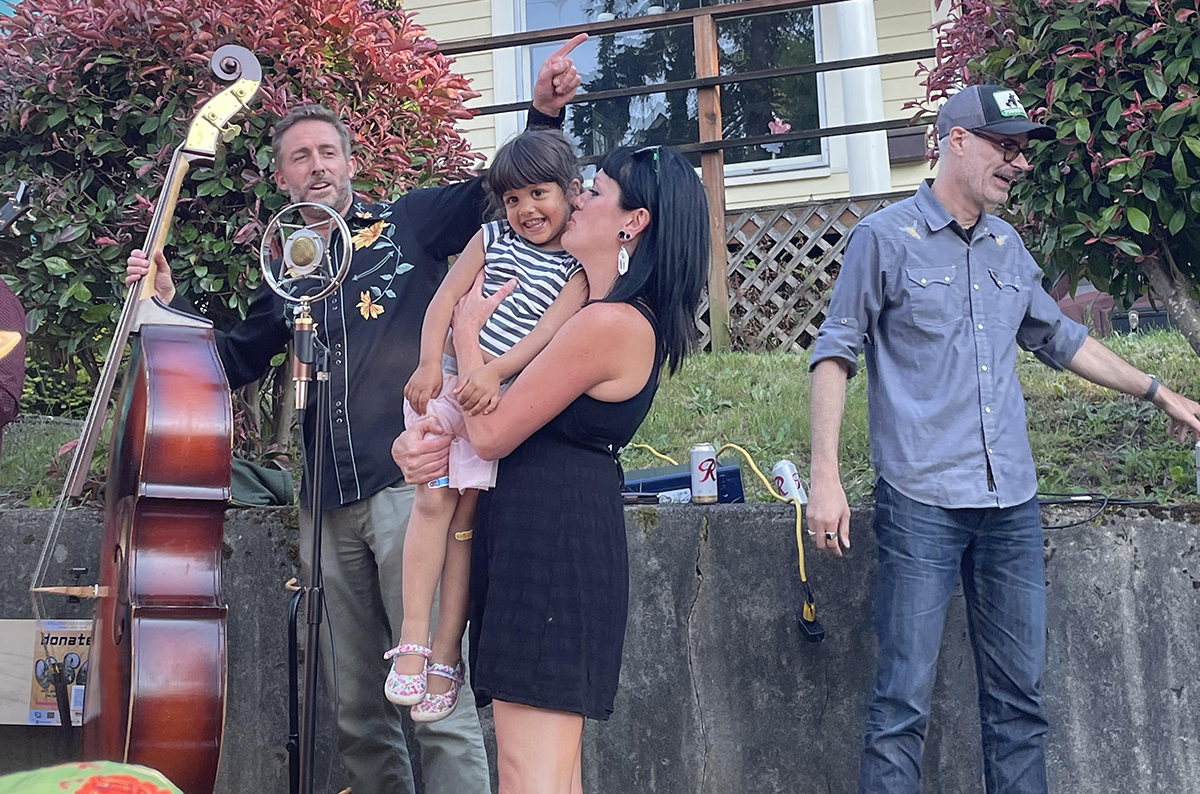
Neighborhood Matching Fund Small Sparks grants provide up to $5,000 in funding for small community activities such as neighborhood clean-ups, block parties, events, community art projects, workshops, and more. Applications for Small Sparks are accepted on a rolling basis through October 31, 2023. For more information on the fund and how to apply visit: www.seattle.gov/neighborhoods/community-grants/neighborhood-matching-fund
